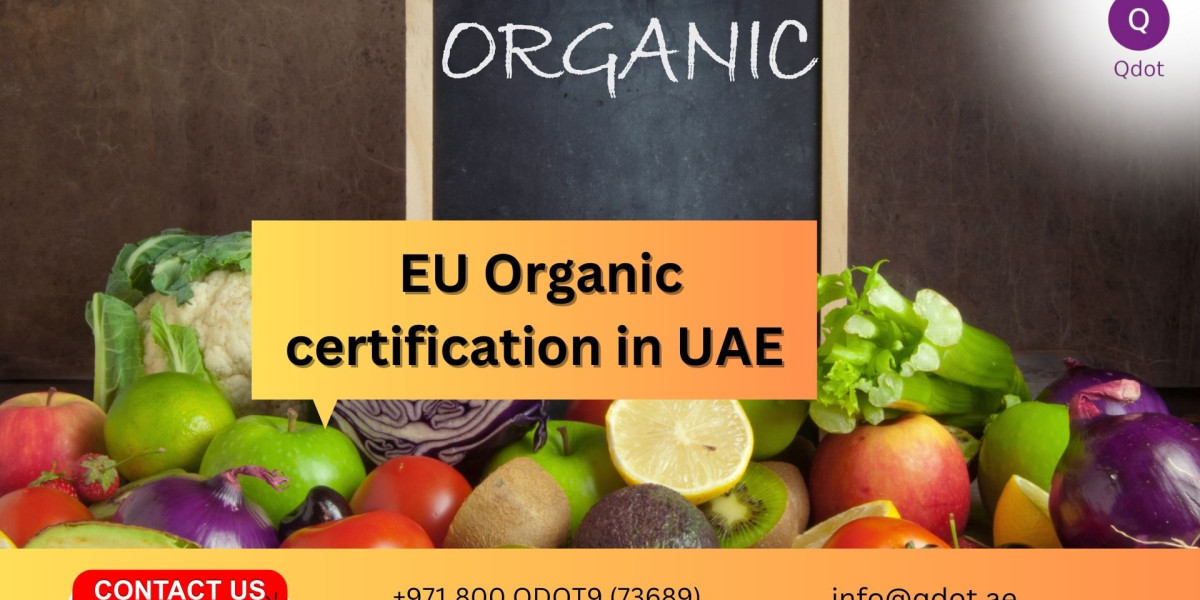Businesses are increasingly looking for EU Organic Certification to boost their credibility and get access to foreign markets as the organic food sector in the United Arab Emirates continues to grow. Businesses in the UAE can export their organic products to Europe and win over customers thanks to this certification, which guarantees that organic products adhere to the strict guidelines established by the European Union (EU).
Requirements for EU Organic Certification in UAE:
To achieve EU Organic Certification, businesses in the UAE must meet strict guidelines covering every stage of production, processing, and distribution. Some key requirements include:
- Organic Farming Standards – Crops must be grown without synthetic pesticides, fertilizers, or genetically modified organisms (GMOs). Farmers must also follow sustainable and ecological farming methods.
- Livestock Regulations – Animals must be raised under humane conditions, provided organic feed, and kept free from hormones or antibiotics, except in emergencies.
- Processing & Manufacturing – Food processors must ensure that organic and non-organic products are handled separately to prevent contamination. Only approved additives and processing aids can be used.
- Certification & Inspection – Businesses must undergo an auditing and inspection process conducted by EU-accredited certification bodies to verify compliance.
- Labeling & Traceability – Products must carry the EU Organic Seal, along with proper documentation to ensure transparency in the supply chain.
Benefits of EU Organic Certification in UAE
- Access to European Markets – With EU Organic Certification, businesses in the UAE can export their organic products to Europe, tapping into a highly profitable market.
- Increased Consumer Trust – The EU Organic Seal assures consumers that the product meets high-quality standards, boosting confidence in organic food.
- Competitive Advantage – Businesses that achieve this certification stand out in the marketplace, attracting both local and international buyers.
- Sustainability & Environmental Protection – Complying with organic agriculture standards promotes ecological balance, reduces chemical usage, and enhances soil health.
- Higher Profitability – Certified organic products often command higher prices, leading to increased revenue for farmers, processors, and retailers.
Challenges in Obtaining EU Organic Certification
- Strict Compliance Requirements – Meeting EU Organic standards requires significant investment in processes, farming methods, and documentation, which can be challenging for small businesses.
- High Certification Costs – The financial burden of auditing, inspections, and maintaining compliance can be expensive.
- Ongoing Monitoring & Renewal – Businesses must consistently meet certification standards, with periodic inspections and renewal processes to retain their certification.
- Limited Awareness & Training – Many farmers and food processors in the UAE need training and support to fully understand and implement organic agriculture practices.
While obtaining EU Organic Certification in UAE requires effort, the long-term benefits far outweigh the challenges. Businesses that comply with these standards can expand into global markets, strengthen consumer confidence, and contribute to a more sustainable future for organic agriculture in the Middle East.



